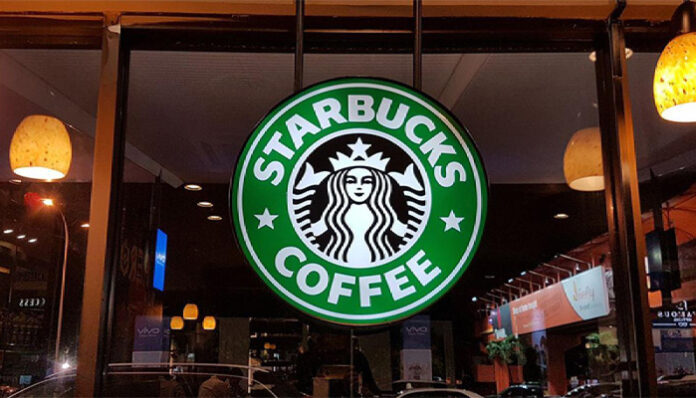Appoints New CEO Amid Boycott Starbucks Why? Controversy and Sales Slump
In a recent development, Starbucks has named Brian Niccol, the CEO of Chipotle, as its incoming leader. This change follows a period of over a year under the leadership of Laxman Narasimhan. Narasimhan’s time at the helm was marked by difficulties, including a notable slump in sales. This decline was, in part, driven by negative consumer reactions linked to the company’s supposed connections with Israel. Such controversy led to rising calls for boycotts against American coffee brands in regions like the Middle East and South Asia.
With Niccol’s appointment, Starbucks aims to navigate these troubled waters and restore its performance. The hope is that this leadership shift will bring new strategies and improvements to counteract the recent setbacks.
Boycott Starbucks Why?
Starbucks has recently been at the center of controversy due to alleged ties with Israel. The boycott against the coffee giant has gained momentum, especially following the devastating impact of Israel’s ongoing conflict in Gaza. Reports indicate that nearly 40,000 Palestinians have been killed and around 100,000 have been injured.
The situation was exacerbated by a misleading letter that falsely claimed Starbucks was funding the Israeli military. This misinformation triggered widespread outrage, particularly in areas sympathetic to the Palestinian cause. The hashtag #boycottstarbucks quickly went viral on social media platforms such as TikTok and X, amassing millions of views. Many critics argue that Starbucks either directly or indirectly supports Israel.
However, the issue extends beyond just a hoax. As an American corporation, Starbucks is implicated in the broader context of US support for Israel, which includes significant military aid and diplomatic backing. Since October 7, Israel’s military actions—described as “retaliatory”—have led to extensive damage, targeting schools, hospitals, and tent camps. The Gaza Strip, spanning roughly 360 square kilometers, has seen widespread destruction, with at least 1.9 million people displaced, many of whom have been relocated multiple times during the conflict.
The backlash against Starbucks reflects a growing global movement criticizing Israeli policies. Progressive groups, both in the US and internationally, have increasingly voiced their opposition, leading to heightened scrutiny and boycotts of American companies perceived as supportive of Israel.
Starbucks’ Position on Allegations of Support for Israel
Starbucks has strongly refuted allegations that it supports Israel or any military actions in the Middle East. The company has issued a statement clarifying its stance, emphasizing that it “condemns violence” and is dedicated to fostering an inclusive and welcoming atmosphere for customers globally.
In their statement, Starbucks conveyed their sympathy for those affected by the ongoing conflict in the Middle East, asserting, “Starbucks is a global company committed to providing a place where everyone feels welcome and a sense of belonging, anywhere in the world. Our hearts break for all affected by the violence and conflict in the Middle East. We’ve always condemned violence against the innocent.”
The company also reiterated that it has “never contributed to any government or military operation.” Despite these assurances, the backlash against the brand persists, particularly in the Middle East. The controversy has had tangible effects, leading to significant repercussions for Starbucks’ operations in the region. In response to falling sales, the company’s Middle Eastern franchises were forced to lay off 2,000 employees in March.
Global Brands Facing Boycott Movements
Starbucks is not the only company grappling with calls for a boycott due to alleged connections with Israel. Several other international brands have also been targeted for similar reasons.
McDonald’s, for instance, faced backlash when Omri Padan, the CEO of its Israeli franchise, offered free meals to Israeli military personnel. This gesture was interpreted as support for the Israeli military, prompting boycott calls that gained traction in countries like Kuwait, Malaysia, and Pakistan. Consumers in these regions accused McDonald’s of taking a pro-Israel stance.
Disney+ has encountered calls for a boycott as well, largely due to perceived support for Israel. Activists have criticized the platform, urging people to avoid its services.
The clothing brand Zara also faced significant backlash after a marketing campaign that featured imagery of rubble and body bags. The campaign was deemed “tone-deaf” by many, leading to protests and the eventual removal of the campaign from all platforms.
Puma has been criticized for its sponsorship of the Israeli Football Association, leading to boycott calls against the brand. Similarly, other fast-food chains like Domino’s, Pizza Hut, and KFC have faced challenges in the Middle East for their perceived support of Israel. Burger King has experienced boycotts in Turkey for the same reason, while Coca-Cola has also been targeted in Turkey and parts of South Asia.

